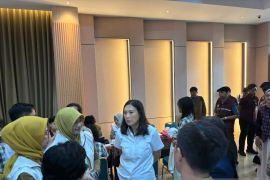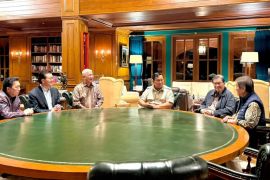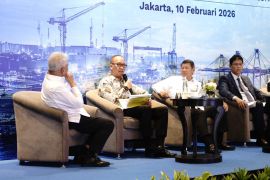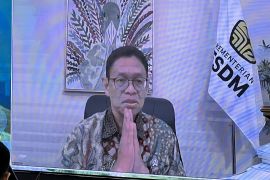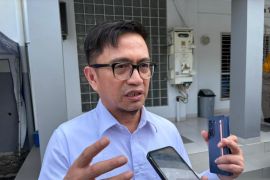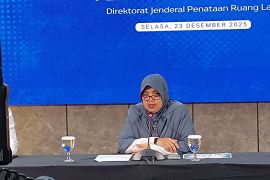The new leader of the organization is expected to be a perfect, or at least near perfect, figure who can internationalize Muhammadiyah.Jakarta (ANTARA News) - Muhammadiyah, the second-largest Islamic organization in Indonesia, is seeking a new and perfect chief to lead the nation and organization towards rapid progress.
During its 47th national congress, which began on August 3 and will be held in the South Sulawesi provincial city of Makassar till August 7, Muhammadiyah will formulate a new agenda for the next five years, including electing a new leader to replace its two-term chairman, Din Syamsuddin.
The new leader of the organization is expected to be a perfect, or at least near perfect, figure who can internationalize Muhammadiyah.
This process will directly or indirectly carry Islamic ideologies across the globe so it sees tremendous growth and becomes the religion with the second-largest following in the world.
On Monday, during his opening address at the congress in Makassar, President Joko "Jokowi" Widodo expressed hope that Muhammadiyah can serve to drive the nations progress.
"Muhammadiyah can strengthen its role as a driving force for the advancement of the nation," Jokowi remarked.
The president added that it should be answerable to the people and find solutions to the problems of the country.
"Our journey as a nation is still far from over. We continue to face several new challenges, but Muhammadiyah can answer them," he stated.
Jokowi is optimistic that Muhammadiyah can respect the diversity of Indonesia, as well.
The president called on the organization to continue to fight for the independence of the Palestinian state and world peace.
Established in 1912, the socio-religious organization of Muhammadiyah aims to adapt Islam into modern Indonesian life.
The organization was chiefly inspired by an Egyptian reform movement, led by Muhammad Abduh, which had tried to harmonize the Muslim faith with modern rational thoughts.
Muhammadiyah advocated abolishing all superstitious customs, mostly relics of pre-Islamic times, and the loosening of the rigid traditional bonds that tended to strangle modern cultural life.
Moreover, the organizations challenges and plans include the internal consolidation of leadership and bureaucratic improvements, along with dealing with the external issues of globalization, poverty, lack of education, low quality of human resources, and the upcoming integrated ASEAN Economic Community (AEC).
In response to these challenges, over the past years, Muhammadiyahs central board reformulated its movement through the notion of Islam "berkemajuan," a hot topic among its members and activists.
"Progressive Islam," a loose translation of Islam "berkemajuan," is clearly part of efforts to cope with several challenges, including poverty, injustice, and the lack of skilled human resources, that its followers and other Indonesian Muslims face.
In addition, Religious Affairs Minister Lukman Hakim Saifuddin expressed hope that Muhammadiyah can enlighten people and promote national civilization.
"This national congress is expected to affirm the commitment of Muhammadiyah to give enlightenment to the people and promote the nations civilization," Lukman remarked in Makassar on Monday.
The religious affairs minister said that he fully supported Muhammadiyahs movement to contribute to the advancement of the nation.
"Muhammadiyah can be a partner of the government to free people from poverty and corruption, to educate the nation and to help people master technology," he pointed out.
Furthermore, in his keynote address during the opening ceremony of the organizations 47th national congress on Monday, the outgoing chairman of Muhammadiyah, Din Syamsuddin, emphasized that Indonesia should compete with other countries to achieve progress.
Syamsuddin added that since its establishment in 1912, Muhammadiyah had envisioned promoting Islam "berkemajuan," or "progressive Islam."
He further noted that the organization, along with other elements of the nation, had contributed to advancing the nation and achieving regional economic development through the ASEAN free trade platform of the AEC.
"The government is the strategic partner of Muhammadiyah," Samsuddin stated, adding that the organization has been consistently contributing to the progress of the nation in the fields of education, health, and social and economic affairs.
According to Syamsuddin, as Muhammadiyah and the government share a proportional relationship, the organization will continue to lead efforts towards the advancement of the nation.
"Muhammadiyahs movement follows the policy of amar makruf nahi munkar, which translates to commanding the good and forbidding the evil. If the government issues a policy not in line with this mandate, the organization will not hesitate to criticize it," he affirmed.
Furthermore, Syamsuddin urged Muhammadiyahs large family in Indonesia and other countries to be appreciative of the successful and smooth implementation of the national congress in Makassar, which some 6,000 participants and representatives from 16 countries attended.
Chief of Muhammadiyahs International Session K. H. Muhyiddin Junaidi stated in Makassar on Sunday that the participants included representatives from the United States, Germany, France, Russia, Italy, Japan, Taiwan, Iran, the Netherlands, Vietnam, Timor-Leste, Thailand, Singapore, and Malaysia, among others.
Junaidi explained that the foreign representatives were enthusiastic to follow the deliberation, especially to discuss the agenda of the sister program for the 2015-2020 period.(*)
Reporter: Otniel Tamindael
Editor: Heru Purwanto
Copyright © ANTARA 2015
